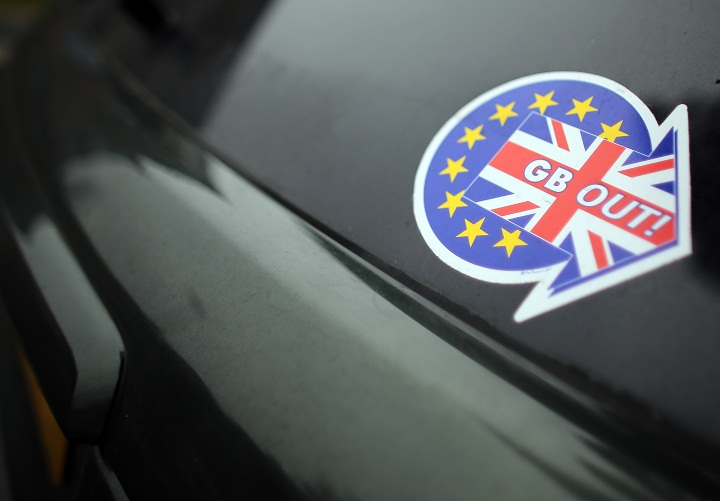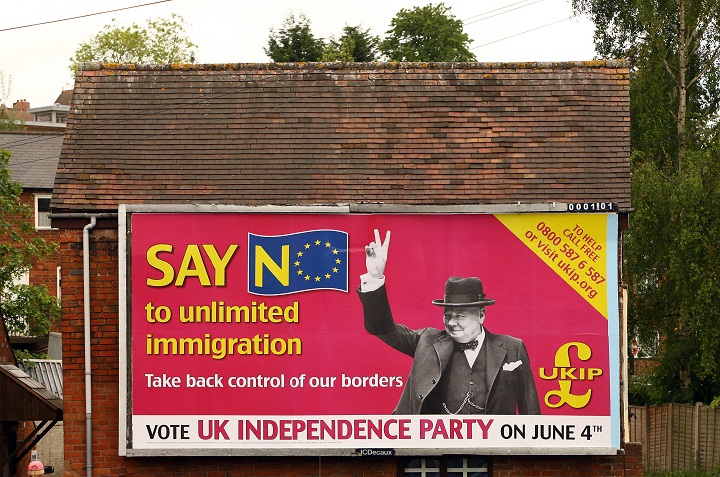MONTREAL – When it was first founded in 1993 by Dr. Alan Sked and other members of the Anti-Federalist League, the goal of the UK Independence Party (UKIP) was to get England out of the European Union.

But as the party grew in popularity, its message and goals evolved, moving from a focus on independence to social policy.
By 2009, the party was campaigning on limited immigration to the United Kingdom. In the 2013 local elections, UKIP saw the most significant surge for a fourth party in British politics since World War II.
Sections taken from one UKIP manifesto read: “Our traditional values have been undermined. Children are taught to be ashamed of our past;” “Multiculturalism has split our society. Political correctness is stifling free speech” and “…end support for multiculturalism and promote one, common British culture.”
A similar criticism of multiculturalism has also entered political discourse in Canada, in particular around Quebec’s proposed Charter of Values.
“Quebec is multiethnic, but not multicultural,” former Quebec premier Bernard Landry noted in an interview on The West Block.
He went on to suggest that multiculturalism was imposed on Quebec, which continues to reject the ideology to this day.
- Budget 2024 failed to spark ‘political reboot’ for Liberals, polling suggests
- Train goes up in flames while rolling through London, Ont. Here’s what we know
- Peel police chief met Sri Lankan officer a court says ‘participated’ in torture
- Wrong remains sent to ‘exhausted’ Canadian family after death on Cuba vacation
READ MORE: No room for multiculturalism in Quebec, former premier says
It was this sort of message that led UKIP’s leader Sked to resign in 1997, citing racism as one of the reasons for moving on.
The 66-year-old a professor of international history at the London School of Economics registered a new party called the New Deal in early September.
In an exclusive interview, Global News caught up with the former leader of UKIP to get his perspective on Quebec’s Charter of Values.
Global News: Quebec’s premier, Pauline Marois, suggested last week that while France’s efforts at secularism were “not perfect,” they were still preferable to the multiculturalism policies practised in the U.K., saying: “In England, they’re smashing each other in the face and throwing bombs because of multiculturalism and nobody knowing any more who they are in that society.” What do you think of her assessment?
Alan Sked: Complete rubbish. The British have a very strong but very understated sense of nationality. They are naturally very tolerant and would be very suspicious of the need for government-sponsored patriotism. When Gordon Brown started a debate on Britishness nobody knew what he meant. Most Britons would fail the government test on citizenship set for foreigners.
GN: Do you think it’s helpful to draw a distinction between “multiethnic” and “multicultural”?
AS: No. I don’t support illiberal policies of banning religious symbols or modes of dress. It reeks of insecurity and paranoia. People should have the right to express themselves. I believe in tolerance.
GN: Do you think that multiculturalism has split British society and undermined its cultural values?
AS: No. There is little evidence for that. Most Indians and Pakistanis in polls say they are prouder to be British than most natives. UKIP is trading on this issue as a form of covert racism. It is a dog whistle policy to racists.
GN: Why do you think parties like UKIP and the Parti Quebecois are adopting what many describe as anti-immigrant policies?
AS: They are desperate or lack intelligence or both. It’s illiberal and pathetic and displays a lack of confidence in one’s own culture.
GN: Like many in Britain, there are Quebecers who are concerned with protecting their cultural traditions and language. Are there policies that you would suggest that could help maintain a common culture and language in the province?
AS: No. If you are happy with your language and culture you will use and enjoy them. They will survive as natural and living things. Cultural enthusiasm cannot be produced artificially and attempts to do so will backfire. Look at Scotland’s attempts to secure Gaelic.





Comments